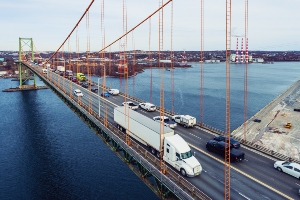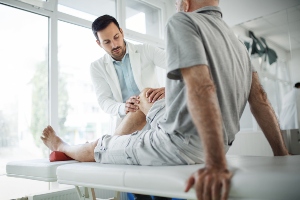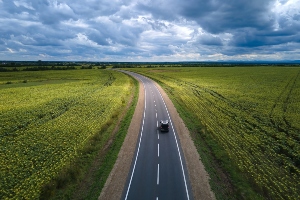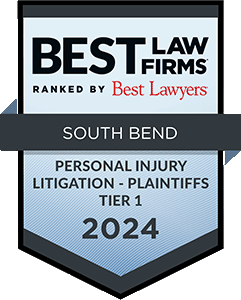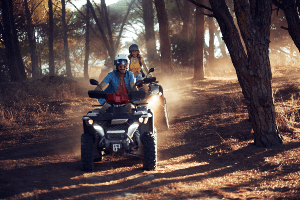 Just as their name suggests, off-road vehicles are not meant to be driven on major roadways. There are restrictions on off-road vehicles because of the potential hazards they pose to the other cars on the highway. If a collision occurs, the injuries could be catastrophic for all parties involved.
Just as their name suggests, off-road vehicles are not meant to be driven on major roadways. There are restrictions on off-road vehicles because of the potential hazards they pose to the other cars on the highway. If a collision occurs, the injuries could be catastrophic for all parties involved.
If you were injured in an accident involving an off-road vehicle, call our licensed South Bend car crash lawyers to discuss your claim during a free consultation. We can help determine your potential legal options to recover compensation for medical bills, lost wages and other damages.
Below, we discuss how liability for an off-road vehicle crash may be determined and how to file a claim.
What Does Indiana Law Say About Off-Road Vehicles?
According to the Indiana Department of Natural Resources, an off-road vehicle (ORV) may be ridden on the public right-of-way adjacent to a public highway. The exception to this access is when there is a limited access highway. ORV operators must always ensure there is enough width on the road to safely ride without endangering life or property. Off-road vehicles may also cross open highways at a 90-degree angle to get from one area to another, but only after:
- Bringing the vehicle to a full stop
- Yielding to all traffic
Each city, town, county and municipality may have individual rules and regulations for off-road vehicles.
The rules for off-road vehicles in South Bend generally follow state guidelines. However, anyone riding on or crossing a city road must be at least 16 years of age and possess a valid driver’s license.
No off-road vehicles are allowed on the following roadways in South Bend:
- Northbound State Route 101 from Broadway Street north to Skidmore Slough
- Southbound State Route 101 from Skidmore Slough south to Broadway Street
- East of the 500 block of Alder Street
- Northbound State Route 101 from the South Bend city limits north to D Street
- Southbound State Route 101 from D Street south to the South Bend city limits
- No motorized vehicles are authorized to be on any section of the Rails to Trails.
Indiana law does not require off-road vehicles to be insured, and many homeowners’ insurance companies do not cover damages caused by them. However, the majority of people who own an off-road vehicle choose to have them insured.
What Factors Help Determine Liability?
There are certain factors that can help to determine who may be liable for an off-road vehicle crash.
Where the Collision Occurred
If you were injured in an accident on a road where ORV use is restricted by state law, the ORV operator could be liable for your damages. However, if the accident occurred in an area where ORV use is not restricted, then fault may depend on assessing who caused the collision.
Identifying the Negligent Party
If you were driving a car or truck and were injured in a collision caused by the negligence of a driver in an ORV, then he or she could be held liable for your damages. The same applies if you were riding as a passenger in an ORV and the driver caused the crash.
Some negligent actions in an off-road vehicle are the same as for other vehicles and may include:
- Speeding
- Failing to yield
- Ignoring roadway signs
- Driving under the influence
What Are My Options When Filing a Claim?
If the negligent driver of an off-road vehicle caused you harm, then you may be able to file a claim with the ORV’s liability insurance. If there is no insurance available, you might have the option to file a claim through the uninsured motorist coverage of your own auto insurance policy.
If you were riding an ORV and injured in a crash caused by the negligent driver of another vehicle, then you may be able to pursue the compensation through that driver’s liability insurance.
Call an Experienced Attorney
Pursuing compensation for an off-road vehicle accident can be complex. Each accident is unique, and there are several factors that must be determined to establish liability. Depending on the situation, it may also be difficult to get insurance information from the at-fault party.
Fortunately, our attorneys are prepared to thoroughly investigate your claim to determine all potential legal options that could help you to recover full and fair compensation.
We offer a free consultation and charge you nothing while we work on your case.
Call (574) 444-0741 to learn more.
